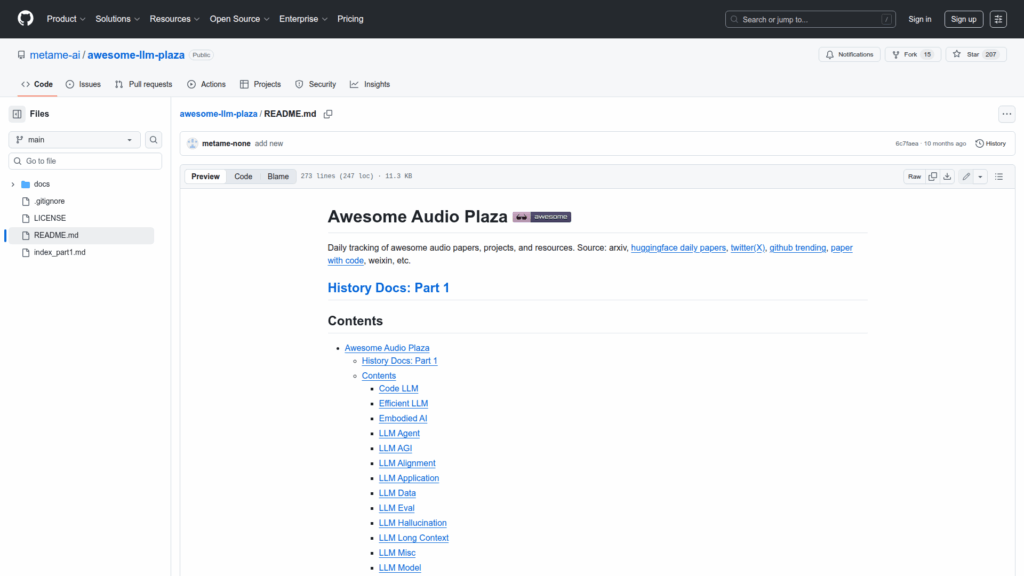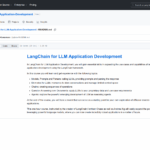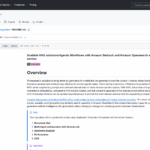awesome-llm-plaza
Basic Information
Awesome LLM Plaza is a curated, continuously updated index that tracks papers, projects, tools and resources across the large language model (LLM) ecosystem. It started as an audio-focused collection but documents a wide range of LLM topics including code models, efficient LLM techniques, embodied AI, agent frameworks, AGI discussion, alignment, applications, datasets, evaluation, hallucination, long-context methods, multimodal and vision-language models. The README links to dedicated docs pages for each subtopic and collects source references from arXiv, Hugging Face daily papers, Twitter/X, GitHub trending, Paper with Code and other feeds. The repository organizes pointers to surveys, projects, products, tutorials and toolkits so readers can discover relevant literature and implementations without needing to search many separate venues. It is intended as a discovery and reference hub for people following LLM research and engineering developments.








